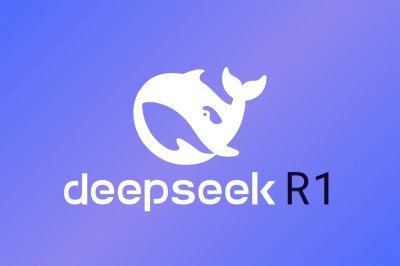Mark Cuban's Disruption Formula: Why Most AI Companies Are Missing the Mark
@devadigax27 Aug 2025

Mark Cuban, the billionaire entrepreneur known for his investments in everything from streaming services to healthcare, recently shared his unique perspective on disruption, particularly in the burgeoning field of artificial intelligence. Speaking on the Equity podcast, Cuban outlined what he believes is the key to truly impactful innovation and why, in his estimation, many AI companies are failing to capitalize on the immense potential of the technology. He argues that the focus should shift from flashy, incremental improvements to solving real-world problems with genuine, impactful solutions.
Cuban's "disruption formula," as he calls it, doesn't hinge on groundbreaking, technologically impossible feats. Instead, it centers on identifying a significant pain point in a particular market and then leveraging technology, often AI, to alleviate or entirely eliminate that pain. This pragmatic approach stands in stark contrast to many AI companies, which he believes are overly focused on creating sophisticated algorithms and impressive demonstrations without a clear, practical application. He criticized companies focused on incremental improvements in existing systems, calling it "shiny object syndrome," where the focus is on the technology itself rather than the problem it's trying to solve.
"Most people are building AI for AI's sake," Cuban stated. "They're not thinking about the problem they're trying to solve. They're thinking about how cool their algorithm is." This, he argues, leads to a disconnect between innovation and real-world impact. He emphasizes that true disruption comes not from technological prowess alone but from its effective implementation to address a meaningful need. This involves deep market research, understanding user behavior, and building a solution that integrates seamlessly into people's lives.
Cuban used the example of healthcare, a sector he has heavily invested in, to illustrate his point. He pointed out that while AI has the potential to revolutionize diagnostics, treatment, and patient care, many AI companies in the healthcare space are focused on incremental improvements to existing systems, rather than addressing the fundamental inefficiencies and limitations within the industry. He believes that the real opportunity lies in using AI to solve critical issues like access to care, affordability, and diagnostic accuracy. This requires a thorough understanding of the complexities of the healthcare system, rather than just applying AI as a generic solution.
This philosophy extends beyond healthcare. Cuban's investment portfolio demonstrates his belief in solving tangible problems. His involvement in companies using AI to improve efficiency in logistics, personalize education, and enhance customer service reflects his emphasis on practical applications over technological showmanship. He believes that successful AI companies will be those that focus on a specific niche, deeply understand the needs of that niche, and build AI-powered solutions that directly address those needs.
Cuban's critique isn't solely focused on the technological aspects of AI development. He also emphasizes the importance of the business model and the team behind it. He argues that a brilliant algorithm is useless without a viable business plan and a strong team to execute it. This necessitates a deep understanding of market dynamics, regulatory landscapes, and the complexities of scaling a successful business. He highlighted that even the best technology will fail without a sound business strategy to support its growth and reach.
Furthermore, Cuban touched upon the importance of data privacy and ethical considerations in AI development. He stressed that building trust with users is crucial for the long-term success of any AI-powered product or service. This requires transparency about data usage, robust security measures, and a commitment to responsible AI development. Ignoring these ethical considerations, he argued, will ultimately hinder the adoption and widespread acceptance of AI technologies.
In conclusion, Mark Cuban's "disruption formula" is not about building the most advanced AI; it’s about identifying a genuine problem, understanding the market, and then developing an AI-powered solution that solves that problem efficiently and effectively. His emphasis on practicality, market understanding, and ethical considerations offers a refreshing perspective in a field often dominated by technological hype. By focusing on real-world impact over technological extravagance, Cuban suggests a pathway for AI companies to not just survive but truly thrive and disrupt their respective industries.
Cuban's "disruption formula," as he calls it, doesn't hinge on groundbreaking, technologically impossible feats. Instead, it centers on identifying a significant pain point in a particular market and then leveraging technology, often AI, to alleviate or entirely eliminate that pain. This pragmatic approach stands in stark contrast to many AI companies, which he believes are overly focused on creating sophisticated algorithms and impressive demonstrations without a clear, practical application. He criticized companies focused on incremental improvements in existing systems, calling it "shiny object syndrome," where the focus is on the technology itself rather than the problem it's trying to solve.
"Most people are building AI for AI's sake," Cuban stated. "They're not thinking about the problem they're trying to solve. They're thinking about how cool their algorithm is." This, he argues, leads to a disconnect between innovation and real-world impact. He emphasizes that true disruption comes not from technological prowess alone but from its effective implementation to address a meaningful need. This involves deep market research, understanding user behavior, and building a solution that integrates seamlessly into people's lives.
Cuban used the example of healthcare, a sector he has heavily invested in, to illustrate his point. He pointed out that while AI has the potential to revolutionize diagnostics, treatment, and patient care, many AI companies in the healthcare space are focused on incremental improvements to existing systems, rather than addressing the fundamental inefficiencies and limitations within the industry. He believes that the real opportunity lies in using AI to solve critical issues like access to care, affordability, and diagnostic accuracy. This requires a thorough understanding of the complexities of the healthcare system, rather than just applying AI as a generic solution.
This philosophy extends beyond healthcare. Cuban's investment portfolio demonstrates his belief in solving tangible problems. His involvement in companies using AI to improve efficiency in logistics, personalize education, and enhance customer service reflects his emphasis on practical applications over technological showmanship. He believes that successful AI companies will be those that focus on a specific niche, deeply understand the needs of that niche, and build AI-powered solutions that directly address those needs.
Cuban's critique isn't solely focused on the technological aspects of AI development. He also emphasizes the importance of the business model and the team behind it. He argues that a brilliant algorithm is useless without a viable business plan and a strong team to execute it. This necessitates a deep understanding of market dynamics, regulatory landscapes, and the complexities of scaling a successful business. He highlighted that even the best technology will fail without a sound business strategy to support its growth and reach.
Furthermore, Cuban touched upon the importance of data privacy and ethical considerations in AI development. He stressed that building trust with users is crucial for the long-term success of any AI-powered product or service. This requires transparency about data usage, robust security measures, and a commitment to responsible AI development. Ignoring these ethical considerations, he argued, will ultimately hinder the adoption and widespread acceptance of AI technologies.
In conclusion, Mark Cuban's "disruption formula" is not about building the most advanced AI; it’s about identifying a genuine problem, understanding the market, and then developing an AI-powered solution that solves that problem efficiently and effectively. His emphasis on practicality, market understanding, and ethical considerations offers a refreshing perspective in a field often dominated by technological hype. By focusing on real-world impact over technological extravagance, Cuban suggests a pathway for AI companies to not just survive but truly thrive and disrupt their respective industries.
Comments
Related News

Beyond the Mic: Instagram Denies Eavesdropping, But AI's Predictive Power Redefines Digital Privacy
@devadigax | 01 Oct 2025
@devadigax | 01 Oct 2025

Microsoft 365 Premium Redefines AI Productivity, Bundling Copilot to Rival ChatGPT Plus Pricing
@devadigax | 01 Oct 2025
@devadigax | 01 Oct 2025

Wikimedia's Grand Vision: Unlocking Its Vast Data Universe for Smarter Discovery by Humans and AI
@devadigax | 30 Sep 2025
@devadigax | 30 Sep 2025

Google Drive Fortifies Defenses with New AI-Powered Ransomware Detection
@devadigax | 29 Sep 2025
@devadigax | 29 Sep 2025

The DeepSeek Phenomenon: Unpacking the Viral AI Chatbot from a Leading Chinese Lab
@devadigax | 29 Sep 2025
@devadigax | 29 Sep 2025
 AI Tool Buzz
AI Tool Buzz